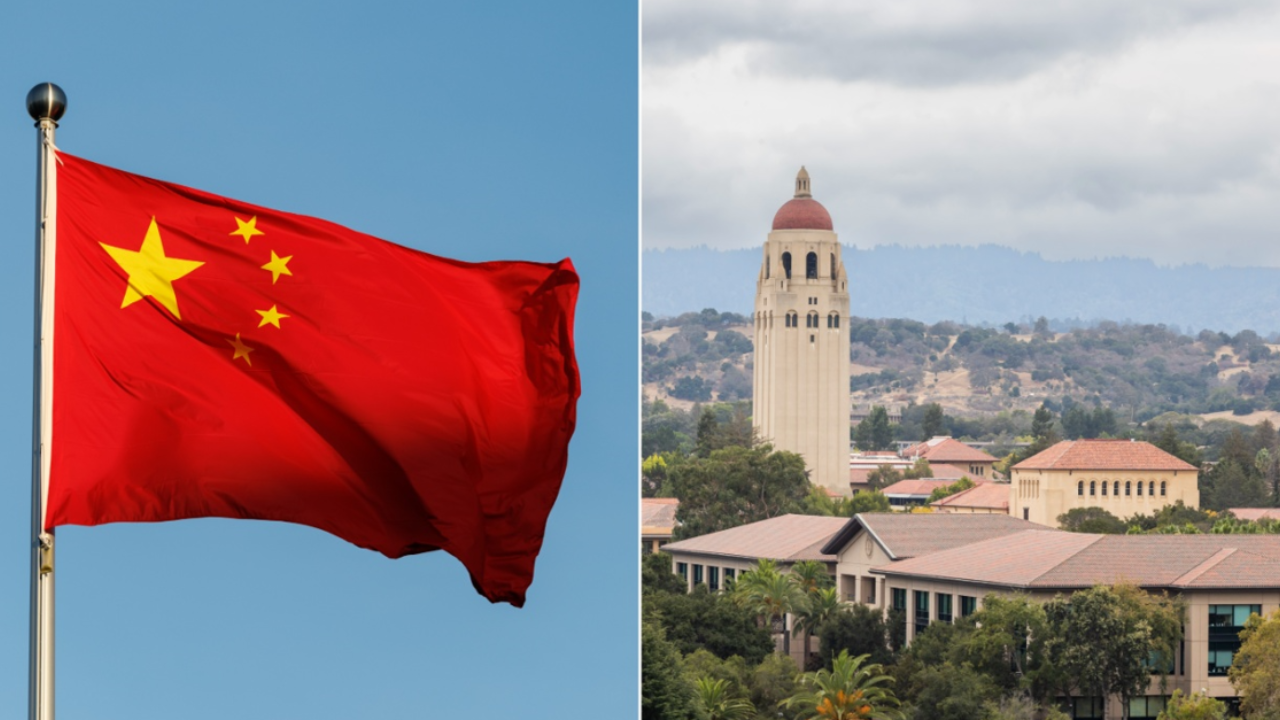Bombshell report suggests ‘Chinese spies’ infiltrating prestigious US university

A recent bombshell report out of Stanford University has shed light on the influence of spies from the Chinese Communist Party that have likely infiltrated the prestigious institution and other universities nationwide in order to gather intelligence. The report, published by the Stanford Review, tells the story of a Stanford student – given the pseudonym “Anna” to protect her identity – who was targeted by a man named Charles Chen posing as a fellow student.
According to the report, Charles Chen initially reached out to Anna under the guise of discussing networking opportunities, but his messages soon took a strange turn. He began asking personal questions, encouraging Anna to visit Beijing on a trip he would pay for, and advising her on how to avoid visa scrutiny from authorities. He also instructed her to communicate through the CCP-monitored WeChat and to delete any screenshots of their conversations.
Upon seeking guidance from experts familiar with espionage tactics, Anna discovered that Charles Chen was not affiliated with Stanford and was likely an agent of the Chinese Ministry of State Security (MSS), tasked with gathering intelligence from sympathetic Stanford students. The investigation revealed that Charles had targeted multiple students, most of whom were women researching China-related topics.
The report highlights three major takeaways from its findings. Firstly, it outlines a systematic approach to extracting information from targeted students. Secondly, it describes how loyalty tests are administered to ensure compliance. And finally, it reveals that the CCP demands detailed information to be sent back.
The article also delves into the repercussions faced by students who refuse to provide information to the CCP. According to some Chinese international students, their parents back home are threatened or interrogated by police if they do not comply. This creates a culture of fear and silence among those who are targeted by Chinese spies.
The House Select Committee on China previously sent a letter to Stanford warning of the risks posed by China to STEM research. Concerns about Chinese espionage have quietly persisted for years, with some individuals too afraid to speak out publicly. The pervasive culture of silence at Stanford and beyond has allowed the CCP to orchestrate a widespread intelligence-gathering campaign.
Former California GOP Congressman Michelle Steel expressed concern over the influx of Chinese funding into prestigious universities, calling the situation very dangerous. Hudson Institute senior fellow Michael Sobolik emphasized the importance of shedding light on foreign espionage and coercion on university campuses, urging Stanford to speak out against such activities.
In response to the report, Stanford University stated that it takes its commitment to national security seriously and has rigorous policies in place to safeguard research conducted by its faculty and students. The university is currently looking into the allegations raised by the Stanford Review and has reached out to federal law enforcement for further investigation.
While it is crucial not to generalize and make assumptions about all Chinese students, it is important to protect innocent students who are coerced and punished by the CCP. Efforts must be made to vet individuals coming into the country, including students and diplomats, to prevent espionage activities.
In conclusion, the report sheds light on the covert operations of Chinese spies at Stanford University and underscores the need for increased vigilance and transparency in dealing with foreign threats to national security. It is essential to protect the legitimate rights and interests of Chinese students studying abroad while addressing the challenges posed by espionage and coercion from foreign entities.




